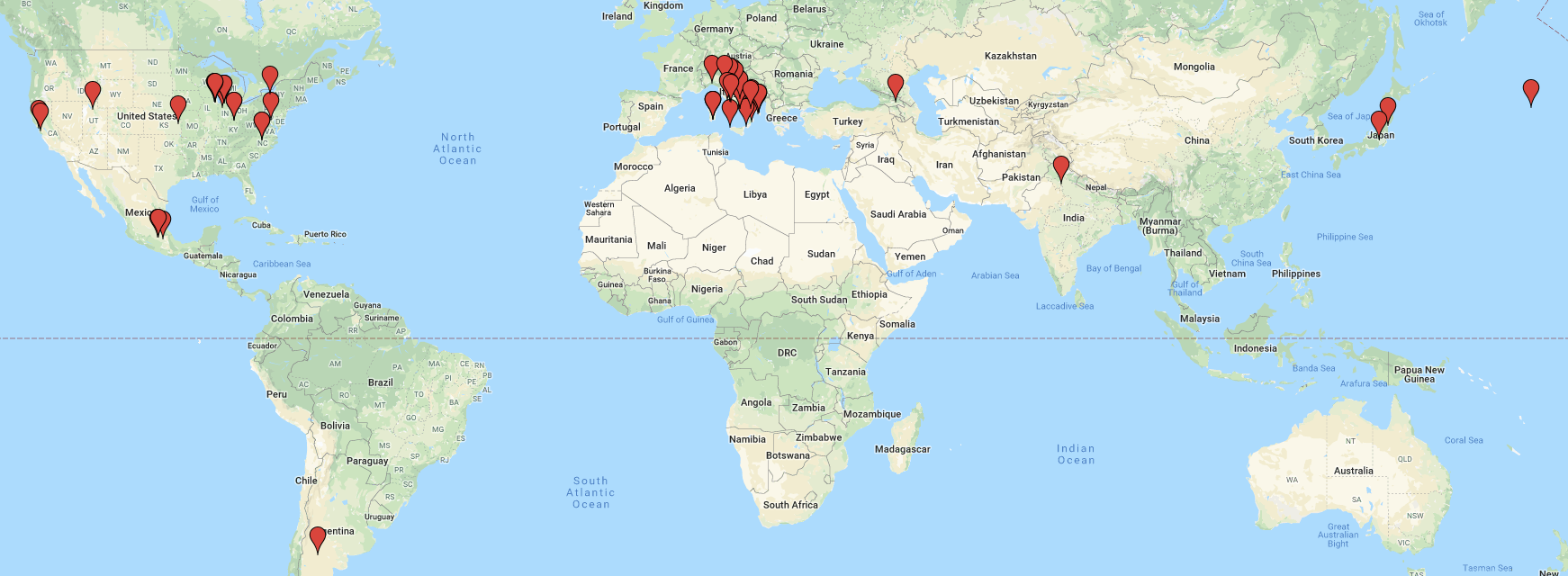Friday Flyer on Monday - May 20, 2019

Spotlight on International Muon Week 2019
You may recall that IMW 2019 was featured in an earlier edition of the FF, just before IMW took place. This week, we focus on a summary of results from the 54 registered participating groups worldwide. The primary objective of this year's study was to measure the average speed of muons. Two types of detectors were used to collect this year's data: QuarkNet scintillation detectors and Extreme Energy Events (EEE) tracking chamber detectors. Results from both detector types were consistent with one another and the speed of light: approximately 2.71 x 108 m/s for the QuarkNet detectors and approximately 2.89 x 108 m/s for the EEE detectors. Read the full summary. Congratulations to our high school experimenters on a successful IMW 2019! Thanks to Mark Adams, the QuarkNet staff member who leads the cosmic ray studies program, for contributing to this week's Spotlight.


News from QuarkNet Central
An important reminder to any teacher with a cosmic ray detector: You may have noticed the recent glitch in the GPS. To learn more and find out what do do, read the QuarkNet Cosmic Ray Detector GPS Alert. If you decide to max your tech points by handling the problem yourself, follow these "diy" instructions and good luck.
As this school year winds down, be sure to update your QuarkNet profile with any new school or contact information, or with your cosmic ray detector's DAQ number.

Physics Experiment Roundup
The ATLAS Collaboration at CERN recently announced results that place strong constraints on supersymmetric scenarios. Check in on progress as preparations continue for the Deep Underground Neutrino Experiment (DUNE) at the Homestake mine in South Dakota.

Resources
Have you heard the news? As of today, the mass of the International Prototype Kilogram platinum-iridium cylinder located in Paris, France, no longer officially defines the kilogram. Learn about Feynman diagrams from this article and video, both from Quanta Magazine. From symmetry, read about different search strategies in the hunt for physics beyond the Standard Model. And Gizmodo asks, "What does a particle collider sound like?"

Just for Fun
This week, we feature a few fun tweets from the Physics and Astronomy Zone: Pendulum play, honey in zero gravity, and this!
QuarkNet Staff:
Mark Adams: adams@fnal.gov
Ken Cecire: kcecire@nd.edu
Shane Wood: swood5@nd.edu
